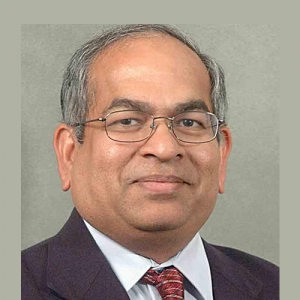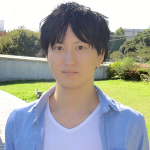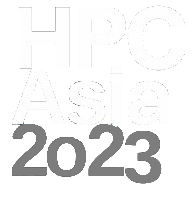Call for papers
CALL FOR PAPERS
Open Access- Proceedings of the HPC Asia 2023 Papers
Click HereImportant Dates
[EXTENDED] Paper Abstract Due:
17 October 2022 (AoE)
[EXTENDED] Paper Submission Due:
24 October 2022 (AoE)
Notice of Paper Acceptance:
30 November 2022 (AoE)
Camera-ready Paper Due:
20 January 2023 (AoE)
Conference:
27 February - 2 March 2023 (SGT)
We welcome new abstract submissions until the paper submission deadline. Please submit abstracts and papers together via the same Linklings submission form by the deadline
Best Paper Award
“Reducing shared memory footprint to leverage high throughput on Tensor Cores and its flexible API extension library” / Hiroyuki Ootomo and Rio Yokoto, Tokyo Institute of Technology, Japan
High performance computing is a key technology to solve large problems in science, engineering, and business by utilizing continuously evolving computing power. HPCAsia, which is an international conference series on HPC technologies in the Asia Pacific region, has been held several times in various countries in Asia, to discuss issues in HPC and to exchange information on research and development results. For the first time ever, HPC Asia 2023 (HPCA23) will be co-located and held in conjunction with the international SupercomputingAsia 2023 (SCA23) conference. The SCA conference is co-organised by supercomputing centres of the region including those in Australia, Japan, Singapore and Thailand and anchored by the National Supercomputing Centre (NSCC) Singapore. SCA incorporates a number of important supercomputing and allied events that together aim to promote a vibrant and shared high-performance computing (HPC) ecosystem, for both the public and private sectors, in Asia. Like HPCA23, SCA23 also seeks to nurture an exchange of ideas, case studies, and research results related to all issues of HPC.
Programme Chair Proceedings Chair

Dr Dhabaleswar K.(DK) Panda
Professor and Distinguished Scholar,
Computer Science and Engineering
The Ohio State University (OSU)
United States of America

Prof Ryohei Kobayashi
Center for Computational Sciences, University of Tsukuba
The HPC Asia 2023 consists of four tracks:
- APPLICATIONS & ALGORITHMS
- PROGRAMMING MODELS & SYSTEM SOFTWARE
- DATA, STORAGE & VISUALISATION
- ARCHITECTURES & NETWORKS
Details for topics of interest include, but are not limited to:
- High performance applications (high speed, low memory, low power simulations)
- Computational science
- Numerical linear algebra and its applications
- High performance library and software framework for applications
- Parallel and vectorization algorithms
- Hybrid/heterogeneous/accelerated algorithms
- Fault-tolerant algorithms
- Graph algorithms
- Programming languages and compilation techniques
- Tools and libraries for performance and productivity
- Performance portability
- System management, resource management and scheduler
- Optimization for communication and memory
- Techniques for testing, debugging, reproducibility and determinism
- Techniques for fault tolerance and energy efficiency
- Big data processing with emerging hardware
- Parallel and distributed file systems
- Storage networks
- Storage systems
- Visualization and image processing
- Reliability and fault tolerance
- Scalable data management
- Transaction processing
- Integration of non-volatile memory
- I/O performance tuning, benchmarking and evaluation
- Provenance
- Experience and application studies on large-scale storage architectures
- Memory architectures
- Interconnect/Network architectures
- Acceleration technologies (e.g., GPUs, FPGAs)
- Power/Energy-aware high-performance computing
- Dependable high-performance computing
- Architectures for emerging device technologies
Abstract and Paper Submission
Proceedings and New ACM Templates
The HPCA23 accepted papers will be published as part of the ACM International Conference Proceeding Series (ICPS). ACM is changing the archive format of its publications to separate content from presentation in the new Digital Library, enhance accessibility, and improve the flexibility and resiliency of our publications. The new Primary template and Publication Workflow were designed to ease the burden on authors and those managing events. Accepted authors are required to upload their source files directly to The ACM Production System (TAPS).
Please be aware that ACM has introduced a new ACM Primary Article Templates and Publication Workflow. Starting March 1, 2020, all ICPS events are required to use the new workflow: https://authors.acm.org/proceedings/production-information/taps-production-workflow. The Primary article templates and workflow are to be used in conjunction with the ACM e-Rights System and the ACM CCS2012 Author Support Tool found in the ACM Digital Library.
All authors MUST use the new proceedings templates and refer to the CCS2012 guide: http://www.acm.org/publications/article-templates/proceedings-template.html/.
Questions regarding the ACM authoring templates MUST be referred to the ACM TeX support team at Aptara, at [email protected]
Online Submission System
Authors submitting papers for HPCA23 must submit them via Linklings.
Authors are invited to submit technical papers of at most 18 pages in PDF format including figures and references, formatted according to the ACM Proceedings Style and submitted through Linklings. Submitted papers must contain original work that has not appeared in and is not under consideration for another conference or journal. The review process is double-blind. There will be no revision/rebuttal process and the review will be one-pass.
Submission Format
All authors should submit manuscripts for review in a single column format. Manuscripts must be at most 18 pages in PDF format including figures and references, formatted according to the ACM Proceedings Style. The ACM templates for Word and LaTeX are shown below. Also, ACM has partnered with Overleaf and the ACM LaTeX template on Overleaf platform is available.
Please follow STEP 1 (Microsoft Word/LaTeX) at “2. The Workflow and Templates” in https://www.acm.org/publications/authors/submissions. Please note that there are two different instructions for Word and LaTeX template users.
ACM templates
- Word: https://www.acm.org/binaries/content/assets/publications/taps/acm_submission_template.docx
-
LaTeX:https://www.acm.org/binaries/content/assets/publications/consolidated-tex-template/acmart-primary.zip
(use a “manuscript” format option (Please refer to sample/sample-manuscript.tex)) -
Overleaf:https://www.overleaf.com/latex/templates/acm-conference-proceedings-primary-article-template/wbvnghjbzwpc
(use a “manuscript” format option)
Proceedings
All accepted papers will be published by ACM, and included in ACM digital library if presented at the conference.
Camera-ready submission
The submission of camera-ready manuscripts consists of the following steps.
Please complete all steps no later than January 20, 2023 AOE, otherwise your paper will not be available at the time of the conference.
Complete your e-Rights form first.
Authors whose manuscripts are accepted for publication will receive an email from [email protected] regarding the copyright transfer (check your spam settings if you do not receive it). Please indicate on the e-rights form which copyright form you would like to select. If payment is required (Open Access is selected), please complete the payment. If you do not complete this step, you will not receive an e-mail with the DOI or the TAPS link, and you will not be able to proceed to step 2 and beyond. Please complete this step first.Add the complete rights text and bibliographic strip to your camera-ready manuscript.
After completing their e-Rights form, authors will be emailed the complete rights text and bibliographic strip that must be added to their paper. Please add them to your camera-ready manuscript.Upload your camera-ready manuscript to The ACM Publishing System (TAPS).
Authors who have successfully completed their e-Rights forms will be instructed to upload their source files directly to The ACM Production System (TAPS). This system will generate the final published version in two-column format, but you must upload your submission in single-column format (Before uploading, it is recommended that you use the “sigconf” option to check in advance that there are no problems with the layout of the two-column paper that will be generated by TAPS). Please see TAPS Workflow for more detail.
Once again, we remind you that all of these steps must be completed, no later than January 20, 2023 AOE. In other words, please make sure that your manuscript has been approved by TAPS (step #6 on this page) by the deadline. If approved, you will see the status become 100 %.
Contact
Please contact the Program Chairs at [email protected] for any questions/clarifications about Call for Papers (CFP).
For queries on Papers – please indicate ‘<PAPERS>’ at the start of your Subject heading of your email.
Programme Committee
Dhabaleswar K Panda
(Chair)
The Ohio State University
Ron Brightwell (Vice-Chair: Architecture)
Sandia National Laboratory, USA
Shinji Sumimoto (Vice-Chair: Programming Models and Runtime)
University of Tokyo, Japan
Maria S. Perez (Vice Chair: Storage and Data Visualization)
Universidad Politecnica de Madrid, Spain
Lau Hoong Chuin (Vice-Chair: Applications and
Algorithms)
Singapore Management University, Singapore
Amelie Chi Zhou (F,M,L)
Shenzhen University
Pena, Antonio
Barcelona Supercomputing Center (BSC)
Gerofi,Balazs
Intel
Unat Didem
Koç University
Nakashima,Kota
Fujitsu
Dinan, James
NVIDIA
Miwako Tsuji
RIKEN CCS
Ivona Brandic
TU Wien
Thomas Fahringer
University of Innsbruck
Rizos Sakellariou
University of Manchester
Dongwook Lee
(University of California Santa Cruz (UCSC)
Jerry Chou
National Tsing Hua University (NTHU)
Erwin Laure
Max Planck Computing and Data Facility (MPCDF)
Hari Sundar
University of Utah School of Computing
Niclas Jansson
KTH Royal Institute of Technology
Keita Teranishi
Sandia National Laboratories
Naoyuki Onodera
Japan Atomic Energy Agency (JAEA)
Peng Chen
RIKEN Center for Computational Science (R-CCS)
Huang Tian
Institute of High Performance Computing, Singapore
Li Kenli
Hunan University HNU
Pieter Ghysels
Lawrence Berkeley National Laboratory (LBNL)
Rudy Raymond Harry
IBM Quantum, IBM Japan
Alexandru Costan
IRISA
Dana Petcu
West University of Timișoara (WUT)
Domenico Talia
Università della Calabria
François Tessier
INRIA
Hank Childs
University of Oregon
Hideyuki Kawashima
Keio University
Jorji Nonaka
RIKEN Center for Computational Science (R-CCS)
Jesús Carretero
Universidad Carlos III de Madrid
Manolis Marazakis
Institute of Computer Science, FORTH
Michael Kuhn
Otto von Guericke University Magdeburg
M. Mustafa Rafique
Rochester Institute of Technology (RIT)
Michael Schoettner
Heinrich Heine University Düsseldorf (HHU)
Osamu Tatebe
University of Tsukuba
Suren Byna
Lawrence Berkeley National Laboratory (LBNL)
Youngjae Kim
Sogang University
Katerina Antypas
Lawrence Berkeley National Laboratory (LBNL)
Ramon Nou
Barcelona Supercomputing Center (BSC)
Amro Awad
North Carolina State University
Taylor Groves
Lawrence Berkeley National Laboratory
Anu Mercia
HP Labs
Clay Hughes
Sandia National Laboratories
Yuetsu Kodama
RIKEN
Xiaoyi Lu
University of California Merced
Hari Subramoni
The Ohio State University


